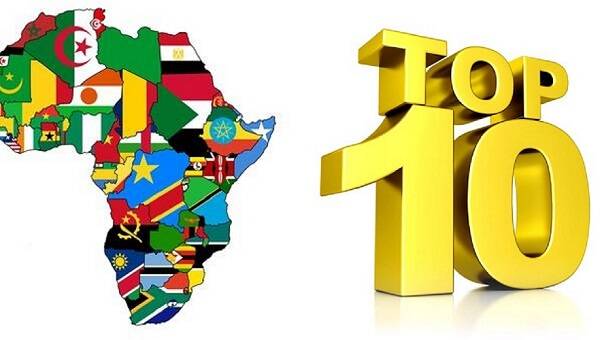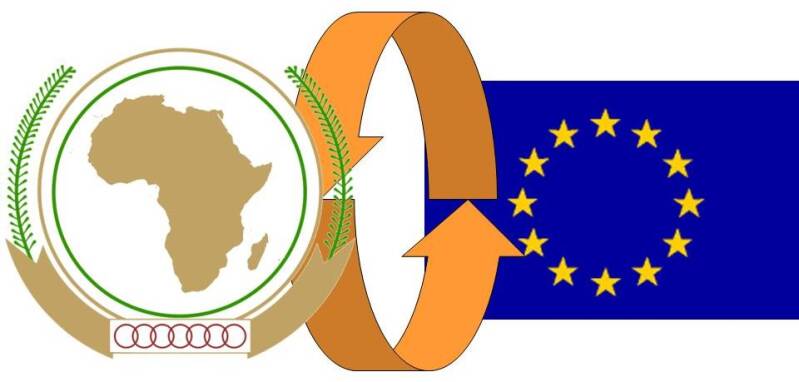The modern industrialisation of ten Sub-Saharan countries with fairly stable institutions accelerates the prosperity of the whole of Africa

The success of the 'ten stable' is quickly followed by fragile neighbours
- Solid European companies investing in Africa help manage global warming, pandemics and forced migration.
- An opportunity for Europe, as a replaceable consumer, to geopolitically deserve a privileged partnership with Africa. (Africa 2050: 25% of the global workforce).
Value chain partnerships
Political decision-makers and civil society in around ten sub-Saharan countries with fairly stable institutions (*) believe that the local transformation of natural resources into competitive products creates more jobs per year than population growth. This is the only way to end poverty and create a self-sustaining middle class that breaks down inequalities from within. These 'ten stable' can already count on many young engineers and highly qualified economists, on accessible industrial sites, on locally available renewable energy sources and Internet connectivity, on agricultural land 'of the world' and on their own financial top layer.
What Africa lacks is practical experience with advanced industrial processes and technologies. This is why Africa relies on FDI (foreign direct investment) and value-chain partnerships with solid experienced industrial SMEs from economically more advanced countries. In addition, these foreign investors and partners act as business schools and encourage the endogenous upper financial layer to also invest in a productive agro-food and manufacturing economy rather than in trade and real estate. If they wish, FDIs can repatriate profits made. Thus, these ‘ten stable’ ensure the permanent transfer of modern industrial know-how and flourish more quickly.
AfCFTA
The success of these pilot countries is pushing politics and civil society in fragile neighbours to follow their example, especially now that the 55 African countries see their salvation in the African Continental Free Trade Area (AfCFTA). Europe must realize, as a consumer and a shining democratic example, that it can be replaced by China, India and the Americas. However, due to cultural and historical ties, all African parents dream, rightly or wrongly, for their children of the European model of society. However, Europe must seize the opportunity as a privileged partner, urgently and urgently, to win Africa's accelerated industrialization. Neighbouring Africa, with 25% of the global workforce by 2050, also presents itself as a huge new market for high value-added European niche products and services.
Ad-hoc geopolitical partnerships
No country, no continent can defuse on its own the global challenges of global warming, pandemics, natural disasters, the aging of the West and China, Africa's overpopulation and nationalism. EU industrial investments in Africa de facto result in the creation of an informal but powerful geopolitical partnership between neighbouring continents with historical and cultural ties that takes the lead in global negotiations on unpopular measures needed to save the planet: carbon tax, consumption (meat), reforestation, urbanization, demography, decentralization of China as the factory of the world, etc.
In practice. Africa is prospering faster thanks to a broad shift in mentality.
- In Europe: “Debates for a large audience on ‘the other Africa’. The industrialisation of ten stable African countries makes the whole of Africa prosper and encourages solid industrialists to invest in Africa.
- In Africa: “Debates for a large audience on Africa's opportunities”. Convince a significant proportion of African SMEs and the financial upper class why and how to succeed with industrial value chain partners from more advanced economies.
(*)
The Economist Democracy Index 2021 Sub-Sahara Africa (Ranking Feb 9th 2022). “Full democracy”: 1. Mauritius; “Flawed democracy”: 2. Botswana; 3. Cabo Verde; 4. South Africa; 5. Namibia; 6. Ghana; 7. Lesotho; 8. Zambia; 9. Malawi; 10. Madagascar; 11. Senegal; 12. Liberia; 13. Tanzania; 14. Kenya; “Hybrid regime”: 15. Sierra Leone; 16. Uganda; 17. The Gambia; 18. Côte d’Ivoire; 19. Benin; 20. Nigeria; 21. Mauritania (Ex “Hybrid regime 2019”: Burkina Faso, Mali)
African Countries With The Best Roads 1. Namibia 2. Egypt 3. Rwanda 4. Morocco 5. Mauritius 6. South Africa 7. Senegal 8. Kenya 9. Tanzania 10. Algeria 11. Seychelles 12. Eswatini 13. Cape Verde (2019 WEF Quality of Road Infrastructure).
(**) Africa’s 'youth employment' crisis is actually a 'missing jobs' crisis. The problem is with the economy and “missing jobs” for everyone—not just for young people. A focus on youth-targeted interventions distracts policymakers and stakeholders from developing the policy agenda for structural change. Industrial policy conclusion no1: “To increase private investment in labor-intensive manufacturing and services”- Brookings Africa Growth Initiative (September 2020)

karel.uyttendaele {@} pandora.be
Circular Know-How Economy/Mobility Africa-Europe SMEs & Young Professionals
Africa's economic transformation : the role of Chinese investment
GRAND INGA hydropower project DRCongo = 44 nuclear reactors
EU governments only must promote the “other” Africa. That’s all
Green hydrogen, a breakthrough in Africa’s industrialisation
“Jobs & Modernity”, that is what Africa is concerned about
Africa, the solution, not a victim of global climate change
A better way to help poor countries fight climate change
Future of Work in Africa. Role of Digital Technologies
Africa's advanced industrialisation in four phases
African green hydrogen silences Putin


Maak jouw eigen website met JouwWeb